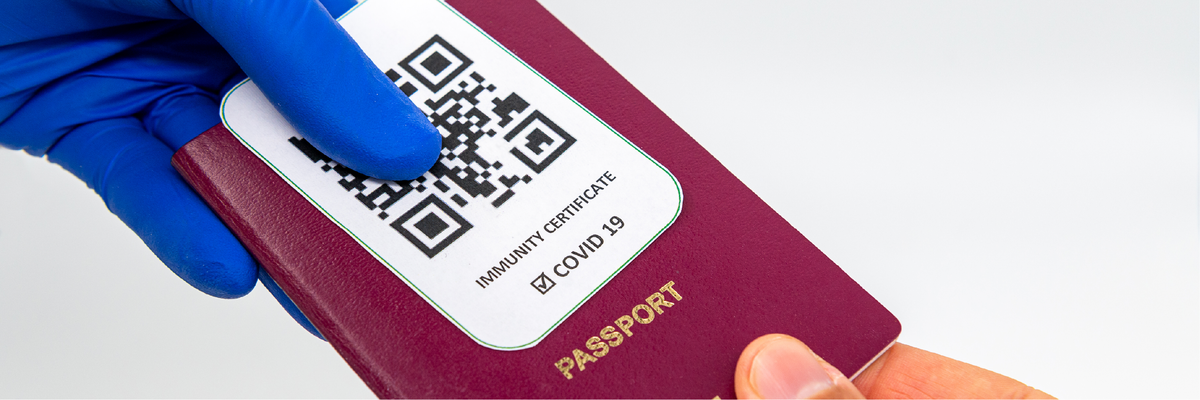Both Keir Starmer and Ed Davey have voiced concerns over Covid-19 vaccine passports for the post-pandemic world in recent days. Meanwhile, Michael Gove, who is leading a review into Covid passports, has said Covid certification could be “a valuable aid to opening up our domestic economy and society faster”. Boris Johnson has previously said it may be up to individual publicans to decide whether or not they will require proof of vaccination, or a recent negative Covid test, from their patrons before pouring a pint.
Further clarity on the Government’s vaccine passport plans is expected later today, in possibly welcome news to the 58 per cent of the general public who would support a passport scheme during the vaccine rollout, and the 72 per cent who would support such a system after vaccine when everyone has been offered their jabs.
The idea most appeals to Conservative voters, who are the most likely of the three major parties to support their use now (64%) and after the programme has offered everyone their vaccine (79%). However, the government may face an uphill struggle in a House of Commons vote. Keir Starmer proclaimed COVID-19 vaccine passports as against the “British instinct” and that the public might not want to “go down this road”.
Yet Labour voters themselves would support the introduction of such a scheme. YouGov research found that 55% of Labour voters would support the introduction of a COVID-19 vaccine passport during the vaccine rollout, rising to more than three quarters (77%) if the policy were introduced after the rollout.
Liberal Democrats too differ from the party leader on the subject. Some six in ten Liberal Democrats (60%) would support the introduction of a vaccine passport scheme while the vaccines are still being given out, and 77% would back their use after everyone has been offered a jab.
While the major voting groups are mostly in agreement, there is a higher degree of opposition among the youngest Britons. Those aged 18-24 are split 45% in support and 42% opposed to a vaccine passport being created during the vaccine’s rollout – doubtless because they are bottom of the priority list for a jab. However, when asked about introducing a vaccine passport system after the vaccination programme has been completed, opposition gives way, with 60% of 18-24 year olds in support and only 27% opposed.
With the end of lockdown in sight, the conversation around potential COVID-19 vaccine passports has centred itself in recent days around that oh so British topic, the pub. Both Starmer and Davey have highlighted their apprehension around vaccine passports and pubs. Starmer said leaving vaccine checks to individual pub landlords, as suggested by the Prime Minster, is “wrong in principle”, and Davey said they could hit the hospitality industry like “a sledgehammer” and create a two-tier society of “haves and have nots”.
The public, again, feel differently. In March YouGov found some 56% of people in support of pubs and bars requiring proof of vaccination, with only a third of people (34%) opposed. Support for this requirement is consistent across voting groups, with 63% of Conservatives, 55% of Liberal Democrat voters, and 54% of Labour voters supporting proof of vaccination before a pint.
YouGov data also shows that, once the vaccine rollout is completed, a significant proportion of the public would prefer to visit pubs and restaurants that only serve vaccinated patrons (43%). By contrast, 23% would prefer to visit establishments that do not require proof of inoculation, and a similar number aren’t bothered either way (22%).
Liberal Democrats and Conservatives share similar opinions on this question, with 49% and 48% respectively preferring a vaccinated-persons only pub or restaurant, while 40% of Liberal Democrats and 41% of Conservatives wouldn’t mind either way or would prefer one that is open to all. Labour voters swing the opposite way: only 38% of Labour voters would opt for a vaccinated-patrons only pub or restaurant, while 48% would either prefer one that is open to all or have no preference.
As well as being the least likely to support vaccine passports, young adults are also the least likely to say they would prefer to visit pubs or restaurants that restrict access to vaccinated customers only. Only a quarter of 18-24 year olds (28%) feel this way, compared to nearly six in ten (58%) of those aged 65 and above.
Whatever path the government decides to take in introducing vaccine passport, YouGov’s data suggests that, while they might have a fight on their hands in the House of Commons among opposition MPs and Tory rebels, they will have the backing of the public.









